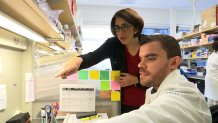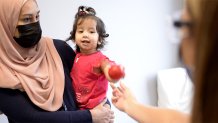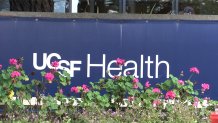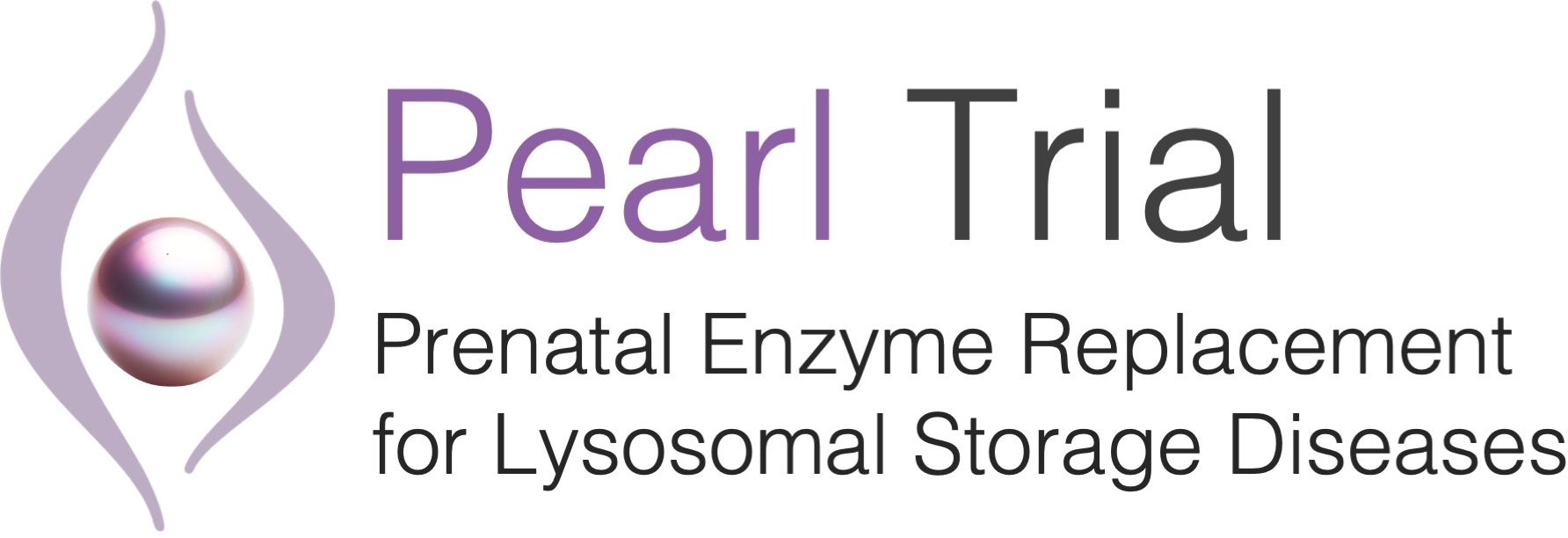In a first-of-its-kind fetal therapy, Dr. Tippi MacKenzie, a pediatric surgeon at UCSF, began treating Ayla Bashir’s Pompe disease before she was even born. Garvin Thomas reports.
By the time 2021 came around, Sobia Qureshi and Zahid Brashir were well aware of the odds. For better and worse, they had lived them.
The Ottowa, Canada, couple had given birth to four children. Two of them, a son and a daughter, are healthy. Two others, both daughters, died before the age of two. Qureshi and Brashir, it turns out, are both carriers of a disease: infant-onset Pompe. Children with it usually don’t live more than a couple of years without treatment.

Still, in spite of the odds and their own experience, Qureshi and Brashir wished to continue growing their family and, in 2021, Qureshi became pregnant once again. Knowing the family’s history, doctors tested the fetus for Pompe. The test came back positive.
“It was devastating, obviously,” Qureshi said.
The outcome this time, however, would be much different, thanks to the efforts of a doctor more than 2,000 miles away in San Francisco.
Qureshi and Brashir’s daughter, Ayla, is now 16 months old, her organs showing no signs of damage typical of Pompe sufferers, and the toddler is meeting all her childhood milestones.

“How do you thank somebody like that? I don't know what to say, but we are just so, so, so grateful to her," said Qureshi.
Dr. Tippi MacKenzie is the pediatric surgeon at UCSF Medical Center who pioneered Ayla’s treatment. Five years ago, she and her team set out to treat a series of diseases, including Pompe, while the patient was still in the mother’s womb. It was a type of therapy that had never been done before.
Success in the lab was promising enough that it was approved to be tried in humans. It was then that Qureshi and Brashir first talked with MacKenzie.
“We literally said, 'You would be the first in the world. We have no idea that this is going to work. What do you think?'” said MacKenzie.
With zero hesitation, Qureshi and Brashir agreed to it.
“It was amazing to know that there was maybe a possibility of giving her a better chance at life and a better quality of life,” said Qureshi. “I jumped at the idea of it. 'OK, how do we make this happen?'"

With the help of physicians at The Ottowa Hospital and CHEO (Qureshi and Brashi could not travel due to COVID restrictions), Ayla received infusions both before and after she was born.
Her doctor and her parents could not be happier about the results.
"It's an enormous privilege. What we do is an enormous privilege,” said MacKenzie.
This article originally appeared on NBC on November 17, 2022.
